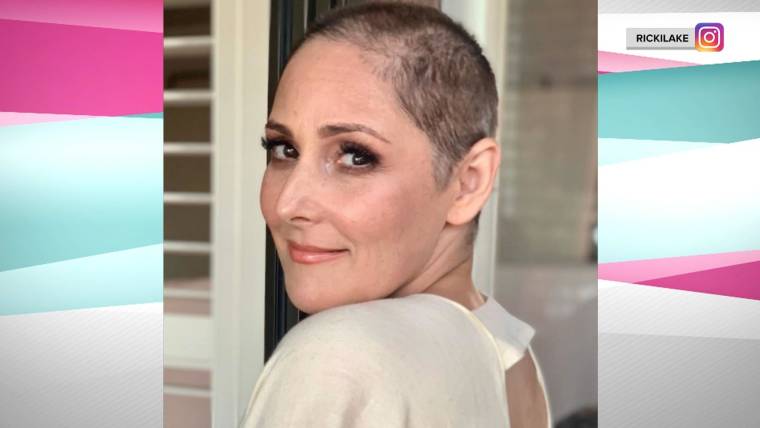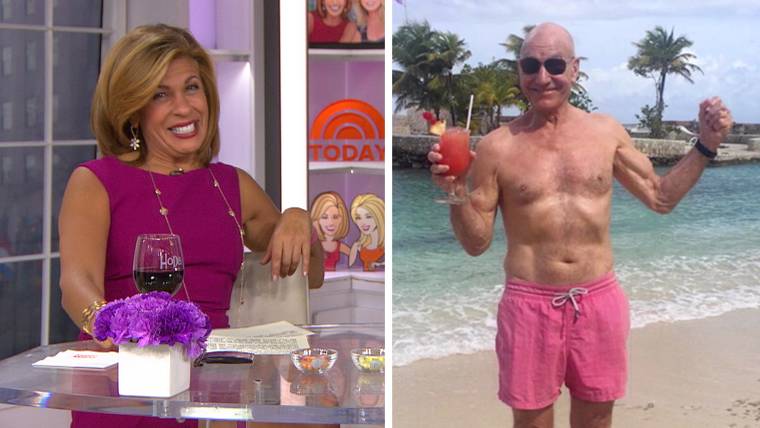In a moving Instagram post on the first day of 2020, actress Ricki Lake opened up about her years-long struggle with hair loss, revealing that she’s been suffering in silence for close to 30 years.
“It has been debilitating, embarrassing, painful, scary, depressing, lonely, all the things. There have been a few times where I have even felt suicidal over it,” she wrote on social media, describing her on-again, off-again hair loss as “maddening.” “Almost no one in my life knew the level of deep pain and trauma I was experiencing,” she continued. “Not even my therapist/s over the years knew my truth.”
Lake’s post received a welcome flood of positive press. I say “welcome” because she’s only one of many women dealing with the trauma of hair loss, and her story has sparked an important conversation about why it remains culturally unacceptable for a woman to be hairless while balding men are viewed — at the very least — as normal.
As a woman who suddenly developed an autoimmune condition called alopecia universalis six years ago at the age of 19, I know firsthand the agony of losing your hair. When it first happened, my head-to-toe hair loss stripped me of my identity and self-esteem. It was confusing, frustrating and honestly infuriating to see what belonged on my head falling out in my hands — and there was nothing I could do to stop it. What I once controlled now controlled me.
It was confusing, frustrating and honestly infuriating to see what belonged on my head falling out in my hands — and there was nothing I could do to stop it.
Years later I’m still completely bald — hair, eyelashes, eyebrows, arms, legs, everything — but I’ve made peace with what has happened. I feel like myself again and I’ve mastered wearing wigs, gotten my eyebrows and eyeliner tattooed, and learned how to wear fake eyelashes. I, like Lake, spent the first two years of my hair loss hiding it from everyone around me, but found a profound peace once I just let go.
Get the think newsletter.
To be clear, there are many reasons why people — male and female — lose their hair. In my and Ricki Lake’s case, it was blessedly not the result of chemotherapy or some life-threatening illness. But while this kind of hair loss doesn’t impair your basic life functions and isn’t directly a threat to your physical health, it’s psychologically damaging and can very easily lead to depression, anxiety and social phobias. Dating, going to work, and even activities as simple as going to the grocery store or the gym can suddenly feel impossible.
My shame and embarrassment was irrational — and I knew it. Admittedly, though, six years into living with total hair loss, I still have days when I struggle. Despite making peace with myself, all it takes is a rude or insensitive comment to send my mood plummeting. I recently had someone close to me tell me to warn them each time I was going to take my wig off so I wouldn’t scare them.
The reality is that hair loss can happen to anyone at any time.
Excessive or abnormal hair loss, called alopecia, comes in many forms including diffuse thinning, patchy bald spots, complete baldness, and everything in between. And it can happen for countless reasons.
According to the Cleveland Clinic, up to 50 percent of women will experience some form of noticeable hair loss at some point in their lives. So why don’t people talk about it? Female hair loss remains a taboo despite ongoing efforts to make beauty standards more inclusive.
According to the National Institutes of Health (NIH), male-pattern baldness impacts an estimated 50 million men in the U.S. — and 30 million women. Furthermore, 6.8 million more in the U.S. have or will develop autoimmune hair loss at some point in their lives, and yet, balding in men is something that is expected, accepted, and even desirable.
A 2012 study from the University of Pennsylvania found that bald men are perceived as more agreeable, dominant, confident, masculine and stronger than men who have hair. Likewise, a similar study from 1996 published in the journal Ethology and Sociobiology also found that bald men are seen as more intelligent, socially dominant, honest, and educated.
These cultural disparities in how we treat hair — who can have it and where — is reinforced everywhere we look. Women with luscious thick hair, long eyelashes, and shapely eyebrows fill our televisions, movie screens and ads. Healthy hair equals attractiveness and femininity, and the more we see this in the media, the more we become conditioned to believe it’s the universal standard. Ironically of course, body hair on women is treated completely the opposite. Losing hair on the body is perfectly fine, but losing hair on the head is a sign of illness and undesirability.
Because hair loss generally isn’t life-threatening, the medical field tends to categorize the condition as cosmetic, downplaying the damage. Furthermore, while androgeneic alopecia (male and female pattern baldness) can be treated with the medication, obtaining insurance coverage for medical interventions can be a challenge and cost thousands of dollars because there are currently no FDA-approved treatments for other types of alopecia, including autoimmune hair loss.
As a result, any available treatments are considered “off-label.” The most common treatment are corticosteroids, administered as an injection or applied topically. Other treatments include immunotherapies, topical retinoids and light-based therapy, among others.
Ricki Lake’s story is of course progress, as are the slowly increasing number of bald models in the fashion and beauty industries. Jeana Turner won the hearts of viewers on “America’s Next Top Model” in 2018 when she tearfully peeled off her wig revealing that she has alopecia. Turner has been proudly rocking her bald head ever since.
Likewise, aspiring model Christie Valdiserri scored a spot in the annual Sports Illustrated “swim search” and made it to the top 17. In an empowering gesture, Valdiserri later took her wig off on the catwalk during a Sports Illustrated runway show in Miami.
Life doesn’t end when you lose your hair. It’d be a lie to say it isn’t difficult to lose your hair, but the shame and embarrassment that comes with hair loss can be even worse. As Lake said after revealing her secret: “I am liberated. I am free. I am releasing and letting go. I am brave. I am beautiful. I am love.”


